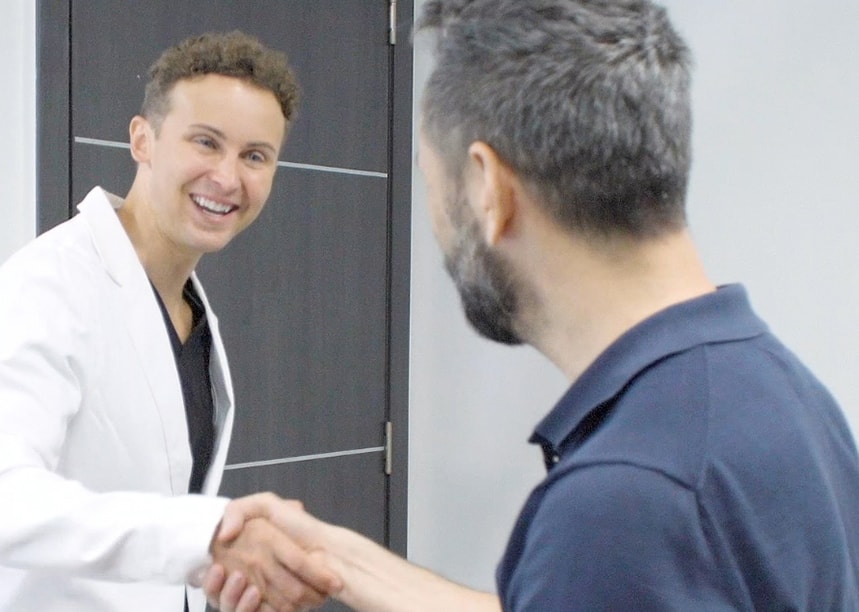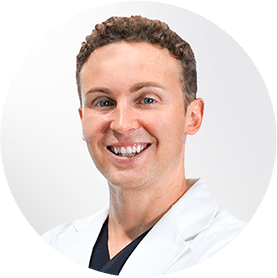Searching for a Back Pain Doc Near You, in NJ?
July 02, 2021
Learn About the Causes of Morning Back Pain and Schedule an Appointment
Back pain is a widespread issue, with 16 million individuals in the United States experiencing recurrent or chronic back pain. Mornings are often the most painful moment of the day for many people.
Quite often, morning back discomfort is simply the product of poor sleep, and there’s a simple reason why. When in motion, the fluid which lubricates the joints, known as synovial fluid, flows, keeping everything smooth. The movement also boosts blood circulation, which transports oxygen and other nutrients to the joints, muscles, and connective tissues. When we lay still for several hours, however, lubrication is drastically reduced, which is why we feel a bit stiff in the morning. If back pain already exists, this can aggravate it.

While morning back pain can often be caused by sleeping poorly, persistent back pain in the morning may be a cause of an underlying condition, such as herniated discs, osteoarthritis, sciatica, or radiculopathy.
Most of the time, morning back pain can be treated with minimal care, but if the discomfort persists, it’s time to schedule an appointment with a good doctor. If you were searching for a ‘back pain doc near me in NJ’, you’ve come to the right place. Dr George Hanna is here to explain some of the most common causes of morning back pain, as well as what you can do to minimize discomfort.
1. Bad mattress
If you’re sleeping on an old, sinking mattress, we’ve probably found the source of your morning discomfort.

When was the last time you replaced your mattress? If we’re talking over a decade, improvements are required. When searching for a new one, pay attention to the material and degree of firmness, as these two factors are the ones that influence how much support you will be receiving. In terms of how much support you need, it depends on your weight, size, and, of course, personal preferences.
Avoid mattresses that are too soft and sink under your weight, but make sure the mattress does not feel like a wooden plank either. Although, if you have problems with your lower back, the second option may not be as bad as you think.
Ideally, you should choose a mattress that offers just enough support to take the pressure off the lower back. Dr George Hanna warns that an uncomfortable mattress won’t just contribute to morning back pain, but will also make you move around a lot during the night, in an attempt to adjust your position, which ultimately leads to poor rest and tiredness in the morning.
2. Old pillow
A reason just as common for morning back pain is sleeping on old pillows, which in time become too soft to provide adequate neck and head support. This leads to pain and stiffness in the neck and shoulders, as well as pinched nerves in the upper back area.
Our pain management specialists recommend changing your pillows every two years, or even often if they stop providing adequate support. As a rule of thumb, you feel your head just sinks in the pillow during the night and most of the weight falls on the shoulders, it’s time for a replacement.
Pillows are essential for sleeping alignment and may be utilized for more than just holding our heads and necks. For example, if you sleep on one side, you can place a firm cushion between your knees to align the spine properly and relieve additional pressure that may be placed on the lower back.
Memory foam pillows are often recommended by doctors, as they take up the shape of the person using it and provide more support.
3. Sleeping poorly
If you wake up with constant pain in the morning, it may be time to analyze how you sleep through the night.
Many people find it comfortable to fall asleep on their backs, but this position can often increase snoring and result in breathing problems. What’s more, because the natural curvature of the spine is altered when sleeping on your back, with more pressure placed on the core, it can lead to serious low back problems.
Sleeping on your stomach is not good either, as it flattens the curvature of the spine and can lead to vertebrae issues.
The doctor-approved sleeping position is sleeping on the side, ideally with a pillow placed between the knees. This is the posture that preserves the natural position of the spine and prevents back problems.
Some people find it difficult to fall asleep on one side. If this is your case, there may be some things you can try to make the previously mentioned sleeping positions less harmful to your back. If you like to sleep on your back, place a pillow under your knees, and if sleeping on your stomach makes you fall asleep the fastest, place the pillow under your pelvis instead.
4. Underlying health condition
On some occasions, morning back pain can be a sign of a more severe condition. Degenerative disc disease and spinal arthritis, for example, may cause sudden back pain, without any obvious triggers. This happens because, as we age, the normal wear and tear process of the vertebral discs accelerates, narrowing the lumbar spinal canal.
Pain may not appear the moment this process starts, which is why it can take months or even years to feel discomfort or experience issues performing everyday tasks.
The reason why pain is more discomforting in the morning is that there is a higher pressure inside the vertebrae discs. Degenerative disc disease can also be accompanied by symptoms such as weakness in the leg muscles, numbness in the limbs, pain that improves with walking and worsens with sitting.
If your morning back pain is accompanied by any of the symptoms above, it is highly recommended that you schedule an appointment with a specialist. Dr George Hanna, Dr Laura Lombardi, and Dr Shane J. Volney, our Harvard-trained pain doctors in Jersey City, are ready to help you find suited minimally invasive treatment options that will reduce the need for more intrusive surgical treatments. Book an appointment in our conveniently-placed locations in Paramus on Route 17, near the Paramus Park Mall, in Clifton, NJ, on Route 46 E, past the Ford dealership, in West Orange, near the Essex Country Club, and in Woodland Park clinic, on McBride Avenue, right next to Woodland Park Dialysis Center.
Book a Consultation
Scheduling a consultation with one of our pain treatment specialists is one of the best ways to determine the proper solution for pain relief.
Meet Our Team of Back Pain Specialists
All of our Pain Doctors in New Jersey are Harvard Trained and Board Certified in Pain Management

Back Pain Doctor Clifton & West Orange NJ
Dr. George Hanna
Dr. Hanna is a Harvard Trained back specialist in New Jersey and New York. He serves as Medical Director of Pain Management.

Back Pain Doctor Clifton & West Orange NJ
Dr. Laura Lombardi
Dr. Lombardi is a Harvard Trained back pain treatment doctor, currently seeing patients in Clifton and West Orange, New Jersey.

Back Pain Doctor Clifton & West Orange NJ
Dr. Shane Volney
Dr. Volney is a Harvard Trained back treatment doctor seeing patients in the NJ areas of Clifton & West Orange, and in NYC.

Back Pain Doctor Clifton & West Orange NJ
Dr. Michael Nguyen
Dr. Nguyen is Harvard Trained and Board Certified in Pain Management. His pain center accepts major medical insurances and Medicare.

Dr. George Hanna

Dr. Laura Lombardi
Dr. Lombardi is a Harvard Trained back pain treatment doctor, currently seeing patients in Clifton and West Orange, and Paramus New Jersey.

Dr. Shane Volney
Dr. Volney is a Harvard Trained back treatment doctor seeing patients in the NJ areas of Clifton & West Orange, and in NYC.

Dr. Michael Nguyen
Dr. Nguyen is Harvard Trained and Board Certified in Pain Management. His pain center accepts major medical insurances and Medicare.
